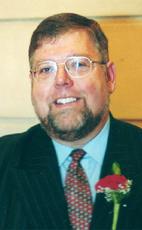Mr. Speaker, a few weeks ago, the mayor of Ferme-Neuve, Jacques Beauregard, who was working as an ambulance attendant at the time, lost his life in a tragic road accident.
I had the privilege of meeting the former mayor of Ferme-Neuve on a number of occasions. He was very involved in his municipality at a social, economic and community level.
Jacques Beauregard leaves a son, Martin, his spouse, Nicole Sarrasin, his father, Roger Beauregard, his mother, Madeleine, and three brothers.
Ferme-Neuve lost a mayor but, above all, a friend and a citizen who was deeply involved in his community. I wish to offer my sincere condolences to his family, his friends and the residents of Ferme-Neuve in their great loss.
Thank you Jacques for all your work. You will always be remembered in Ferme-Neuve and in the beautiful region of Labelle.

